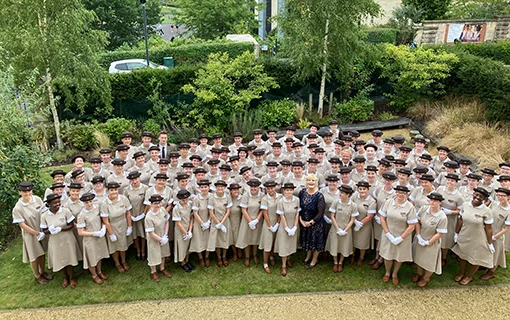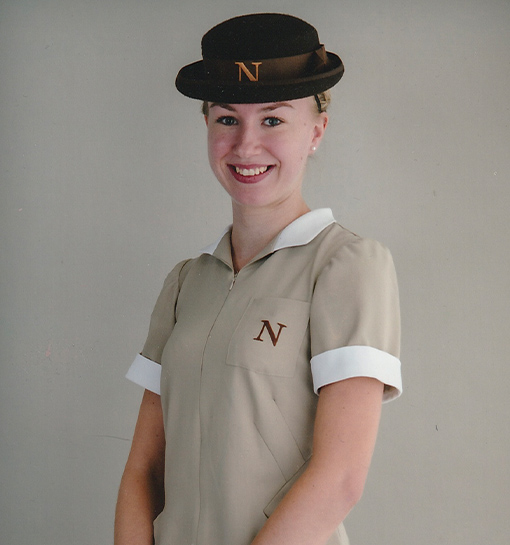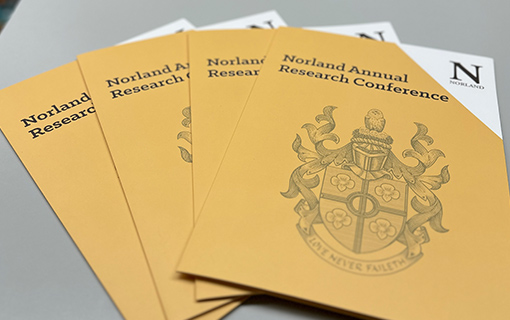My placement diary: Rebekah, daily family placement
24 May 2021

Placements make up just under half of our course and allow our students to put everything they have learned on the degree and diploma into practice.
Placement settings are varied with students benefitting from a minimum of six placements in a range of environments including nurseries, maternity and paediatric hospital wards, primary and special educational needs schools, forest schools and with families.
Second-year student Rebekah has written a placement diary to provide a unique insight into her daily placement caring for a one-year-old girl and how she implemented her learning from the course while on placement.
My name is Rebekah and I am in Set 43. After I finished my GCSEs, I worked in a nursery where I gained my early years educator Cache Level 3 qualification and BTEC health and social care qualification. I worked with a range of ages from five months up to five years, gaining experience in different stages of children’s development – weaning, toilet training, learning to walk and talk and preparing children for their transition to school. I am currently in my second year at Norland and preparing for my residential family placement at the end of this academic year.
I have written a diary on my daily family placement with a charge who had just turned one the month before I started. The family speak German and Farsi around the house as dad is half English and half German and mum is Iranian. I attended this placement from Monday to Thursday, working eight-hour days. The shift pattern varies depending on the family, but I worked 8.30am-4.30pm and one late day 11am-7pm as this suited the family’s routine.
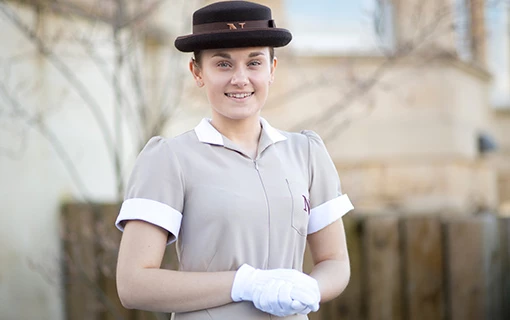
A typical morning when working the late shift
Once a week, when on family placement, we are required to work 11am-7pm to experience the evening and night-time routine within a family environment. On this later shift, I typically wake up at around 8am and get ready for the day ahead. After breakfast with a large cup of tea, I start my studies, often researching, writing or planning assessments.
At around 10am, I put on my practical uniform, tie my hair back into a bun and put minimal make-up on. I tend to pack my bag the night before so it is ready to grab on my way out the door, along with my coat and keys.
Today, I was greeted at the front door by my charge with a huge smile on her face, ready to show me what she had been up to this morning. This morning she had been hiding toys in the shredded paper basket, which we had been exploring the previous day (without the shredder of course) and she has continued to show a huge interest in this! This activity was something we discussed in our professional development: play and learning degree module about how simple activities can be just as effective and provide a multitude of developmental opportunities as more complex ones. In this module, we delved deeper into the importance of play and how, as practitioners, we can support children’s development. We then explored the living room, reading lots of stories, playing with the musical instruments and creating our own musical band.
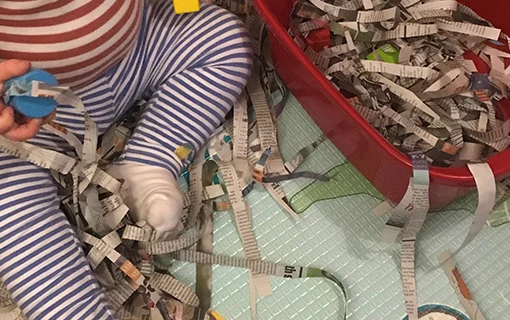
Lunchtime routine and the afternoon
At 11.30am, my charge’s dad swapped with me so I could go into the kitchen to prepare lunch. I made cheesy butternut squash pasta using the skills I have developed in my food and nutrition lectures, ready to be served at 12.15pm. Today, I made enough pasta so that both mum and dad could join us for lunch, which was lovely. On family placements we create a weekly meal plan for each child we are looking after, discussing any dietary requirements and preferences with the parents, to create a nutritionally balanced meal plan.
This links in with the Norland diploma as we don’t just learn how to cook in food and nutrition. We also learn all about nutritional value of the meals we cook in our lectures, which can then be used within our meal plans. When we’re on family placement, we are required to cook at least one day a week. However, this is an area I want to build my confidence in, so I discussed this with the family and I have cooked at least one meal every day or helped to cook alongside mum.
After lunch, at about 1pm, I cleaned my charge’s face and hands with a damp flannel, removed her from her highchair and we went upstairs to have a nappy change and put on a fresh vest ready for sleep time. Mum took over from me to put the child down for a nap and I then cleared up our lunch, washing up the pots and pans I had used and the child’s bowl, cup and spoon. I sanitised the highchair and cleaned the floor underneath.
After that, at 1.30pm, I started ironing the basket of baby grows, tops, leggings and any other items of clothing that belonged to the child.
At 3pm, the child woke up from her nap and dad went to get her up, giving her cuddles. I gave them a few minutes together, packing away what I was doing before heading upstairs to help get her dressed and to change her nappy.
In the afternoon, we went to the park, which meant some preparation was needed. I packed her outings bag, putting in spare clothes, nappies, wipes, toys, water, a mini first aid kit and any other items the family needed. I then helped to get my charge ready, putting on her jumper, rain suit and her shoes, whilst dad got the pram ready. At around 3.30pm we were ready to venture out to the park, meeting lots of families, which was great as it gave her the opportunity to interact with other children from a distance. Today, she was particularly interested in the piles of leaves around the park, throwing them into the air and watching them fall.
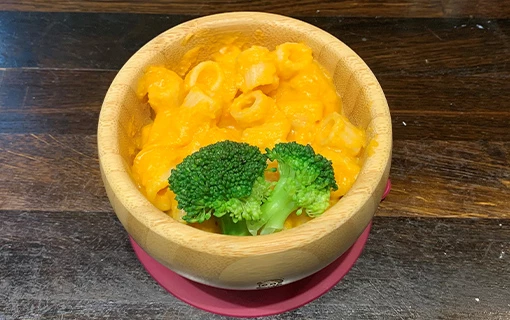
The evening routine
We left the park at 4.45pm ready to head back home for a play before dinner. Once we arrived home, I took off her outdoor clothes and we all washed our hands. I then unpacked anything from the outings bag that didn’t need to stay in there. Before dinner, we played in the living room, exploring the shape sorter and discovering what the word ‘more’ meant.
Dinner was served at around 6pm and I helped Mum prepare in the kitchen. Today we had fish cakes, which was a recipe I learned to cook in my food and nutrition lectures. I helped peel and chop the potatoes and prepare the vegetables while mum cooked the fish and constructed the fish cakes ready for serving.
After dinner, at around 6.30pm, I went upstairs with mum to bathe my charge and get her ready for bed. I used the temperature gauge to make sure the bath was not too hot and then put her in the bath. We put some toys in the bath and she particularly enjoyed filling and emptying the buckets. I then washed her with the body wash, making sure to remove all her left-over dinner! This is something we learn in our masterclasses, which are part of the Norland diploma, using role play to bathe pretend babies and to learn the correct holds. Alongside this, we also learn the correct preparation and method to change a baby’s nappy, both disposable and terry towelling.
After the bath, at around 6.50pm, we wrapped her up in a towel, and put a clean nappy on, new pyjamas and put her into her sleeping bag ready for Mum to breastfeed before bed.
After this was all done, the parents signed my time sheet and I started my journey home.
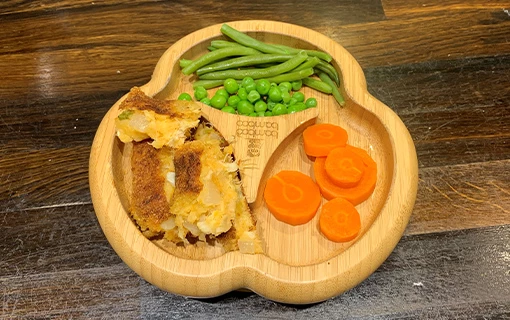
After placement
At home, once I’d washed and changed into my comfortable clothes, I sat in the living room with my housemates and we talked about our days, reflected on our placements and watched a film before heading off to bed, ready to return to placement the next day.
When I am on a late shift, I avoid doing any work once I’m home because it is normally quite late and I’m tired. However, when I am on an early shift, I normally come home from placement and complete any placement paperwork that needs doing. This time on placement, we created a learning journal about the child’s development, so often in the evenings during placement I worked on this, writing up observations and activity plans.
There were lots of fun and enjoyable elements on this placement, and I have especially enjoyed being able to put my knowledge and skills into practice, creating activities and exploring sensory play with my young charge as this was something she had not yet had much experience with. I enjoyed developing bonds with both her and her family, learning how to adapt my skills and abilities to meet their needs and fitting in with their lifestyle. I have particularly learned the importance of time management during this placement, ensuring that I use the time when my charge is napping to prepare elements of dinner or make a start on the ironing, which is something I will take with me into my future placements. During this placement I also built my confidence in the kitchen, which is definitely something I will take into my future placements as I find it quite daunting to cook in front of parents!
Learn more about placements
Learn moreLearn more about our course
Learn moreHost a student placement
Learn more